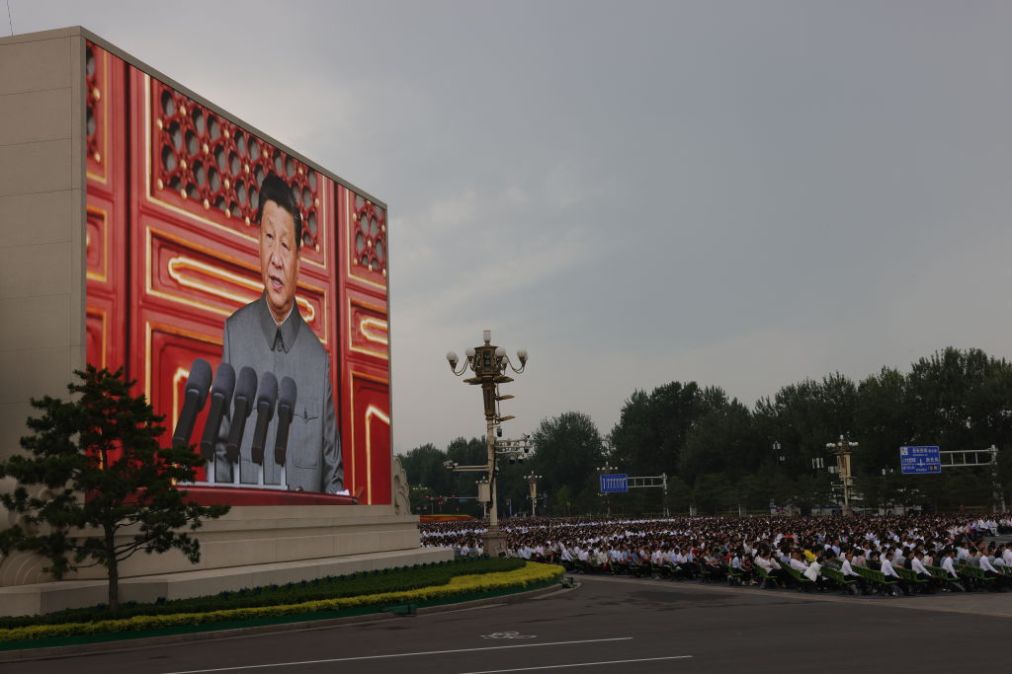Pro-Beijing operatives used social media to try promoting NYC protest

Pro-China operatives behind an effort to cast a negative light on the United States during the COVID-19 pandemic tried using social media to promote a street demonstration earlier this year, according to findings released Wednesday by the intelligence firm Mandiant.
As a part of ongoing research into suspected Chinese influence operations, investigators discovered a network of fake accounts spamming Twitter and other platforms in April with posts calling for Asian Americans to protest racial discrimination in New York City. The effort was an “early warning” that China is getting bolder in how it attempts to influence politics outside of its borders, says John Hultquist, vice president of threat intelligence at Mandiant, a division of FireEye.
“The intent is what worries me here because they’re already trying to cross the serious line of getting people on the street,” said Hultquist.
Mandiant did not definitively attribute the effort to the Chinese government.
The staged protest, which instructed attendees to show up outside the alleged homes of former Trump advisor Steve Bannon and other individuals who claimed the Chinese government manufactured the coronavirus, was ultimately a flop. But it provides an important insight into how apparently Chinese groups are expanding beyond more rudimentary tactics to promote its interests abroad.
Research groups that have been tracking pro-People’s Republic of China operations since 2019, including Mandiant and Google’s Threat Analysis Group, have largely categorized China’s efforts to use social media to further party messaging abroad as unsophisticated and reliant on spam-like tactics.
Early PRC campaigns focused on using disinformation to discredit Hong Kong protesters to Western audiences. Operations have since moved on to wider critiques of the United States’ global leadership and more recently its handling of COVID-19.
Despite an apparently heavy investment in such operations, researchers say influence operations meant to boost Beijing’s image rarely attract significant engagement. A rare exception came earlier this year when an influence campaign criticizing U.S. democracy gained attention from several diplomats on Twitter.
Still, the group’s scale and persistence make it a threat that requires “aggressive” monitoring, according to Shane Huntley, director of Google’s Threat Analysis Group. Google calls this group DRAGONBRIDGE.
“We anticipate they will continue to experiment to drive higher engagement and encourage others in the community to continue tracking this actor, shedding light on their operations and taking action against them,” Huntley said in a statement.
Researchers at Mandiant observe in the new report that while these propaganda campaigns still rely on spam-like techniques, they have massively ramped up the number of social media platforms and languages used to spread their messaging.
In addition to YouTube, Facebook and Twitter, actors have coordinated similar activity across 30 social media platforms, including TikTok, and more than 40 other websites and online forums. Content in Russian, German, Spanish, Korean, and Japanese have all been tied to pro-China influence networks.
One explanation for the surge in content could be that researchers and platforms have put in more work to uncover such operations, says Graham Brookie, director of the Atlantic Council’s Digital Forensic Research Lab.
Since 2019, Twitter and Facebook have become more aggressive in removing influence operations tied to China and other nation-states, while researchers have improved their detection capabilities.
Pro-Chinese groups also appear to be taking a page out of the Russian playbook. Russia’s Internet Research Agency successfully pulled off tricking real Americans into attending fake protests ahead of the 2016 election.
Brookie cautioned against using Russia as a measuring stick for China’s success, however.
“What their definition of success would be is going to be a lot different. China wants to build credibility and been seen as a responsible global power,” says Brookie. Russia, on the other hand, “wants to throw a bunch of wrenches into the information environment,” regardless of reputational cost.
While most of the influence campaigns discovered by researchers demonstrated low engagement, researchers predict that persistent investment in influence operations will ultimately benefit Beijing.
“We have early warning that this is being developed. They clearly have the resources for this and an intent to do something, to create a capability, that is serious,” says Hultquist. “And we can take it seriously now or we can take it seriously when it’s too late.”
Updated 10/8/21: to include additional comment from Google.






